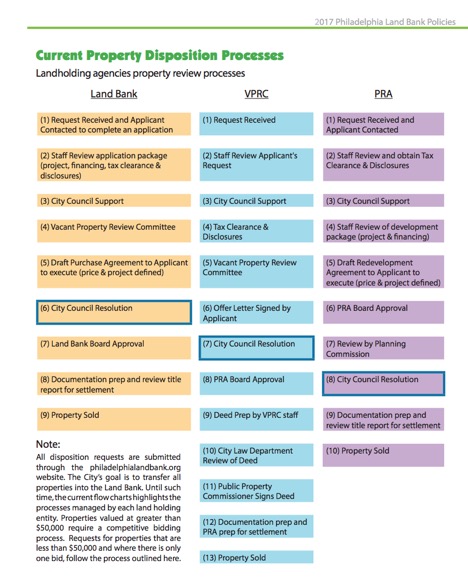The Fix: Shifting the Blame
The Fix: Shifting the Blame
In the wake of a country sale scandal, Councilman Kenyatta Johnson has tried to accept attending off himself. As Philly 3.0's engagement director notes, that's function of the problem
Dec. 11, 2018
Subsequently getting defenseless twice steering metropolis-owned land to the same friend and campaign contributor, and taking serious burn down from the media—and perhaps the FBI—Councilman Kenyatta Johnson's office finally issued a statement making the example for blaming everybody but himself.
THIS ARTICLE IS Office OF A CONTENT PARTNERSHIP WITH:

Here'due south the cardinal section:
"At that place has been a lot of talk near the auction of City-endemic belongings lately. Much of it has been careless and inaccurate. It's time to set the record straight.
Although it'south convenient and unproblematic to lay the dysfunction of Urban center-owned property sales at my feet, it'southward not authentic. Council members practice not collect expressions of interest or assess the qualifications of developers. They do not set sale prices. And they do not formulate deed restrictions or enforce those restrictions when buyers do wrong.
As a matter of law and common sense, those duties lie with the city's land-holding agencies—the Department of Public Holding, the Redevelopment Authority, and the State Banking company—with advice from the Vacant Property Review Committee (VPRC). All of those agencies have staffs and boards that bear primary responsibility for sales of City property.
Every bit a district quango member, my office is to ensure that the views of the residents of the Second District are heard in the process. Without input from district council members, developers—who frequently do non alive in the communities where they buy property—would be left to build whatsoever they want, without whatever concern for the people who alive in those communities."
While it's true that multiple City agencies and authorities are involved in the disposition of city land, information technology is non the case, as Johnson suggests, that this is mainly an administrative decision, with Council members weighing in late in the game.

Prefer the audio version of this story? Listen to this article on CitizenCast beneath:

Every bit this chart from the Land Bank shows, Quango weighs in early in the procedure, before a given property advances to the agencies Johnson mentions. In that location'south simply an initial review from the city staff before Council is consulted to see if it has the support to move forrad.

Given the legal requirement in the City Charter that Quango has to pass an ordinance to dispose of land, this procedure makes a certain kind of sense. If members aren't always going to exist willing to laissez passer an ordinance to sell to a particular applicant, why carp with all the balance of this work?
The real issue is that Councilman Johnson always prefers a discretionary procedure where he gets to be the dealmaker on every single project, letting him reward friends and freeze out disfavored people.
So for Felton Hayman'southward applications to progress as far equally they did, they would accept to take been green-lighted by Councilman Johnson at the very offset of the process. With the Vacant Property Review Committee reporting just one expression of interest to the Philadelphia Redevelopment Authorization when in that location really were xvi—a motion that conveniently avoided the competitive behest process and allowed Johnson to steer the properties to his buddy—information technology just isn't conceivable that Johnson wasn't aware of the other 16 applications first. He would have been amid the first to be consulted about them. Paul Chrystie at the Metropolis says as much in William Bender'due south report on this.
![]()
What we actually need going forward is a rule requiring expression of interest letters to get public data right abroad, available for anyone to see online well in advance of whatever Council vote to sell.
How the initial conclusion is made to put land parcels up for auction in the first place is a mystery, and it seems to depend but on a Councilmember's interest in doing so. If expression of interest letters were all fabricated public, we could see where citizens have tried to learn land but may accept been rebuffed or ignored by elected officials.
![]()
Councilman Johnson's concluding point in the quoted section above also deserves some pushback. The statement that developers would be "left to build whatever they want" without Johnson's direct involvement is just incorrect. Philadelphia has a zoning code that determines what can be built. While people are still gratuitous to apply for variances from what the code says, it's withal the case that right now at that place are baseline rules in identify governing what can and can't be built.
Does Councilman Johnson remember the zoning rules now in place for the remaining vacant lots in the 2nd District are any good? If not, he has essentially unilateral power to change them to his liking. The real issue is that the Councilman ever prefers a discretionary process where he gets to be the dealmaker on every single project, letting him advantage friends and freeze out disfavored people.
Jon Geeting is the director of appointment at Philadelphia 3.0 , a political action committee that supports efforts to reform and modernize City Hall. This is part of a serial of articles running in both The Citizen and 3.0'south blog.
The Gear up is fabricated possible through a grant from the Thomas Skelton Harrison Foundation. The Harrison Foundation does not exercise editorial control or approval over the content of whatsoever textile published past The Philadelphia Citizen.
Photo: Philadelphia Metropolis Council via Flickr 



hernandeznethen55.blogspot.com
Source: https://thephiladelphiacitizen.org/the-fix-shifting-the-blame/
0 Response to "The Fix: Shifting the Blame"
Post a Comment